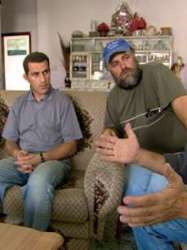Without the King est un film de genre Documentaire
Without the King (2007)
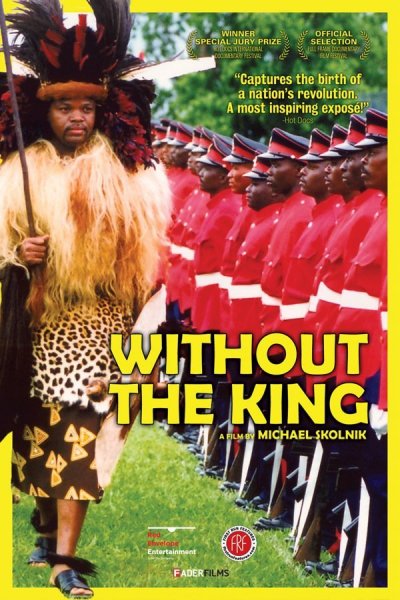
Si vous aimez ce film, faites-le savoir !
Durée 1h23
Genres Documentaire
Themes Afrique post-coloniale, Documentaire sur une personnalité, Documentaire sur la politique, Politique, Royauté
Note67%










Without the King is a 2007 documentary film by Michael Skolnik, an American filmmaker. It follows problems of Swaziland, a landlocked country in southern Africa.
The film features Mswati III, the king of Swaziland, and his heiress and self claimed rapper Princess Sikhanyiso. It shows the angry populace and the country's problems such as a high HIV prevalence, comparing it with the daily life of Mswati III, Africa's last absolute monarch.
Princess Sikhanyiso is critical of the film.
^ Bearak, Barry (2008-09-06). "In Destitute Swaziland, Leader Lives Royally". The New York Times.
^ Scheib, Ronnie (April 23, 2008). "Without the King". Variety. Retrieved May 3, 2014.
^ Ronnie Scheib (2008-04-23). "Without the King". Variety. Retrieved 2013-11-27.
^ Catsoulis, Jeannette (2008-04-25). "Without the King (2007)". The New York Times. Retrieved 2013-11-27.
^ "Swaziland's King of Pain - The New York Sun". Nysun.com. 2008-04-25. Retrieved 2014-05-14.
^ "Pashu :: About this artist on ReverbNation website". Retrieved August 3, 2010.
Commentaires
Postez un commentaire :
Suggestions de films similaires à Without the King
Il y a 8954 ayant les mêmes genres cinématographiques, 10637 films qui ont les mêmes thèmes (dont 1 films qui ont les mêmes 5 thèmes que Without the King), pour avoir au final 70 suggestions de films similaires.Si vous avez aimé Without the King, vous aimerez sûrement les films similaires suivants :

The King and the People (2013)
, 53minutesGenres Documentaire
Thèmes Afrique post-coloniale, Documentaire sur une personnalité, Documentaire sur la politique, Politique, Royauté

Arotzim Shel Za'am (2003)
Origine Israel
Genres Documentaire
Thèmes Afrique post-coloniale, La musique, Religion, Documentaire sur le droit, Documentaire sur la guerre, Documentaire historique, Documentaire sur la musique, Documentaire sur une personnalité, Documentaire sur la politique, Documentaire sur la religion, Le hip-hop, Musique, Politique, Religion juive
Note68%





The film focuses on two young rap artists, Subliminal, an Israeli Jew, and Tamer Nafar, a Palestinian citizen of Israel, and focuses on their music, friendship, and their politicization as public figures. The film traces the relationship between Tamer and Subliminal, as the events of the Second Intifada unfold, and lets the viewer draw conclusions from the souring relations between the two as an individual representation of the polarization process which took place during these years of bloody conflict. In this aspect, the film succeeds in delivering the atmosphere of the loss of hopes for peace after the failure of the Camp David summit between Ehud Barak and Yasser Arafat and the renewed intensity of the conflict since. The film was featured in the San Francisco Jewish Film Festival.
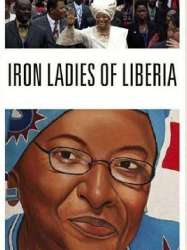
Iron Ladies of Liberia (2007)
, 1h17Réalisé par Daniel Junge
Genres Documentaire
Thèmes Afrique post-coloniale, Documentaire sur une personnalité, Documentaire sur la politique, Politique
Note72%





The film opens with journalist Siatta Scott Johnson's narration over Johnson-Sirleaf's inauguration on 16 January 2006. Among the distinguished guests in attendance are the then first lady of the USA Laura Bush, secretary of state Condoleezza Rice, and South African president Thabo Mbeki. Ellen Johnson Sirleaf is the first ever freely elected female head of state in Africa.

Origine Israel
Genres Documentaire, Historique
Thèmes Afrique post-coloniale, Religion, Documentaire sur le droit, Documentaire sur la guerre, Documentaire historique, Documentaire sur une personnalité, Documentaire sur la politique, Documentaire sur la religion, Politique, Religion juive
Note59%






Israel vs Israel (2010)
, 58minutesGenres Documentaire
Thèmes Afrique post-coloniale, Religion, Documentaire sur le droit, Documentaire sur la guerre, Documentaire historique, Documentaire sur une personnalité, Documentaire sur la politique, Documentaire sur la religion, Politique, Religion juive
Note72%






Origine Bresil
Genres Documentaire
Thèmes Afrique post-coloniale, Documentaire sur une personnalité, Documentaire sur la politique, Politique
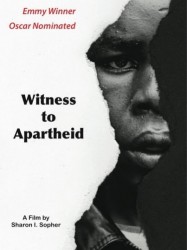
Witness to Apartheid (1986)
, 58minutesRéalisé par Kevin Harrington
Origine Etats-Unis
Genres Documentaire
Thèmes Afrique post-coloniale, Le racisme, Documentaire sur la discrimination, Documentaire sur le droit, Documentaire sur une personnalité, Documentaire sur la politique, Politique
Note68%





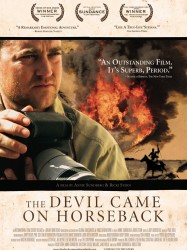
The Devil Came on Horseback (2007)
, 1h25Origine Etats-Unis
Genres Documentaire
Thèmes Afrique post-coloniale, Documentaire sur le droit, Documentaire sur la guerre, Documentaire historique, Documentaire sur une personnalité, Documentaire sur la politique, Politique
Note76%






Une affaire de nègres (2009)
, 1h30Réalisé par Osvalde Lewat
Genres Documentaire
Thèmes Afrique post-coloniale, Documentaire sur le droit, Documentaire sur la guerre, Documentaire historique, Documentaire sur une personnalité, Documentaire sur la politique, Politique
Au Cameroun en mars 2000, le Président de la République institue un "commandement opérationnel" pour lutter contre le grand banditisme de la région de Douala. Le commandement procède à des rafles : 1600 personnes disparaissent ou sont tuées. Un an après, neuf jeunes garçons disparaissent. Le haut-commissaire aux droits de l'homme aux Nations Unies est saisi. Les auteurs de ces rafles sont jugés responsables mais les procédures n'aboutissent pas. Les familles des victimes doivent vivre entre désirs de justice et pressions pour que les crimes soient à jamais effacés de la mémoire collective.
 Connexion
Connexion
